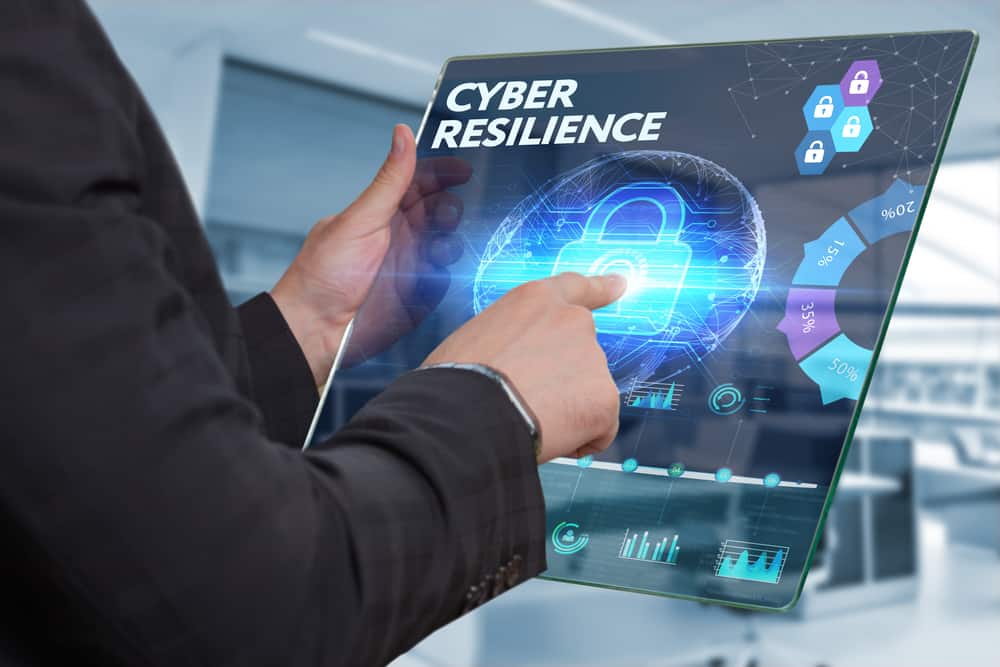
When it comes to the realm of protecting your devices and network from threats, the broad term that most people are generally familiar with is "cybersecurity." However, this major area has several sub-categories or related themes that are often incorporated into or around it, and one of these that's become much more well-known in the IT world in recent years is called "cyber resiliency."
At Onward Technology, we're happy to assist a huge range of business clients with all their network security and related IT needs, with 24/7 real-time monitoring we apply to numerous different clients and needs. What's meant when discussing cyber resiliency, and what are some simple ways to achieve this approach in your business network? Here's a basic rundown.
You've heard of cybersecurity, and you've also likely heard of disaster recovery (if you haven't heard this latter term, it speaks to having a solid plan in place to quickly get your business operational again after a serious event such as data loss, malware attack, etc.). Cyber resiliency is somewhere in the middle of these two concepts, and can be defined as a proactive and holistic approach to cybersecurity that also incorporates disaster recovery concepts.
In other words, cyber resiliency is about taking multiple efforts to ensure all company data is private, protected, backed-up -- and maybe most importantly, recoverable in case of any type of incident.
The concept of cyber resiliency has become much more prominent in business networking conversations for a few reasons. First, as noted, attacks on all types and sizes of businesses are becoming more common (and often more sophisticated), so there's a heightened need to have stronger protection in place. Second, "cyber incidents" can come in many forms and cause different levels of damage, so it's important to have a plan that can address any type of issue that might come up.
Consider the data breaches at Yahoo and Equifax: In both cases, massive amounts of customer data were stolen by hackers. But while the Yahoo breach was eventually blamed on a state-sponsored actor, the Equifax incident was caused by a much more common type of cyber attack. So while the effects were similar (loss of customer trust, millions spent on recovery efforts, etc.), the root cause was different -- and each required a different type of response.
In other words, a "one size fits all" approach to cybersecurity and disaster recovery simply isn't enough anymore. You need a multi-faceted, proactive plan that can address any type of incident -- and this is where cyber resiliency comes in.
Our next several sections will go over how to achieve cyber resiliency within your business, plus how our team will help.
Simply put, it's hard for most organizations to achieve cyber resiliency on their own. Cybersecurity is a huge and complex topic, with new threats emerging all the time. And while you might have in-house IT staff, they likely don't have the bandwidth or expertise to keep up with everything that's going on in this realm.
This is where professional support comes in. A trusted Managed Services Provider (MSP) like Onward Technology can serve as your "virtual IT department," keeping an eye on your network around the clock and responding quickly to any incidents that might come up.
And when it comes to disaster recovery, an MSP can provide invaluable assistance in developing and testing a comprehensive plan -- so you know exactly what needs to be done in case of an incident, and can have confidence that your plan will work as intended. In other words, partnering with a reputable MSP is one of the best ways to achieve cyber resiliency for your business.
Onward Technology is proud to offer comprehensive cybersecurity and IT support services to businesses of all sizes. We'll work with you to assess your specific needs and put together a custom plan that will help you achieve your goals -- including cyber resiliency.
As you're working with our team to develop a cyber resiliency plan, one of the first steps we'll take is to analyze the risks your business faces and what your specific goals are.
This will help us understand what types of incidents are most likely to occur, how much damage they could cause, and which systems and data are most critical to your operations. We'll also consider any compliance requirements you might have (e.g. HIPAA, PCI, etc.), as these will need to be taken into account in your disaster recovery plan.
From there, we'll work with you to develop a comprehensive strategy that will help you meet your goals and protect your business from the types of incidents that are most likely to occur.
As part of our risk analysis process, we'll also help you create a "baseline expectation" for your business -- in other words, what's the minimum level of service you need to maintain in order to keep your operations running?
This is important because it will serve as the starting point for your disaster recovery plan. For example, if you're a retail business, you might need to be able to process transactions and fulfill orders within a certain time frame in order to keep your customers happy.
On the other hand, if you're a healthcare provider, you might need to have systems in place that allow you to access patient records quickly and efficiently -- even in the case of a major outage.
Once we have a clear understanding of your baseline expectation, we'll work with you to develop a plan that will help you meet (or exceed) it -- no matter what type of incident might occur.
For more on how to achieve cyber resiliency for your business, or to learn about any of our managed IT or IT support services, speak to the team at Onward Technology today.